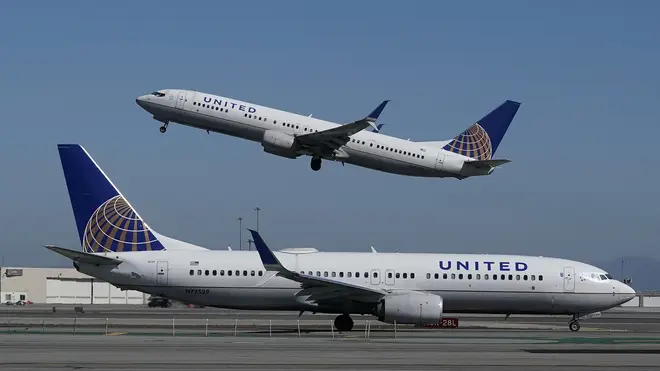
Ian Payne 4am - 7am
15 April 2021, 03:34

Airlines argue that filters and air-flow systems on most planes make them safe when passengers wear face masks.
Leaving middle seats open could give airline passengers more protection from the virus that causes Covid-19, a new study suggests.
Researchers said the risk of passengers being exposed to the virus from an infected person on the plane could be reduced by 23% to 57% if middle seats are empty, compared with a full flight.
The study released on Wednesday supports the response of airlines that limited seating early in the pandemic.
However, all US airlines except Delta now sell every seat they can, and Delta will stop blocking middle seats on May 1.
The airlines argue that filters and air-flow systems on most planes make them safe when passengers wear face masks, as they are now required to do by federal regulation.
Heading to the airport? Don’t forget your face mask! 😷 Watch this video to learn more about how to properly wear a mask. #FlyHealthyFlySmart pic.twitter.com/2Vktd3wsAW
— Airlines for America (@AirlinesDotOrg) April 14, 2021
Researchers at the US Centres for Disease Control and Prevention (CDC) and Kansas State University estimated how far airborne virus particles travel inside a plane.
They used mannequins that emitted aerosol to measure the flow of virus particles through airline cabin mock-ups.
The study, however, did not take into account the wearing of face masks because it was based on a previous study done in 2017, before the pandemic and nor did it consider whether passengers are vaccinated against Covid-19.
The CDC says vaccinated people can travel at low risk to themselves, although the agency still recommends against non-essential travel.
Airlines for America, a trade group for the largest US carriers, said airlines use several layers of measures to prevent the spread of the virus on planes, including face masks, asking passengers about their health, and stepped-up cleaning of cabins.
The group cited a Harvard University report funded by the airline industry as showing that the risk of transmitting the coronavirus on planes is very low.